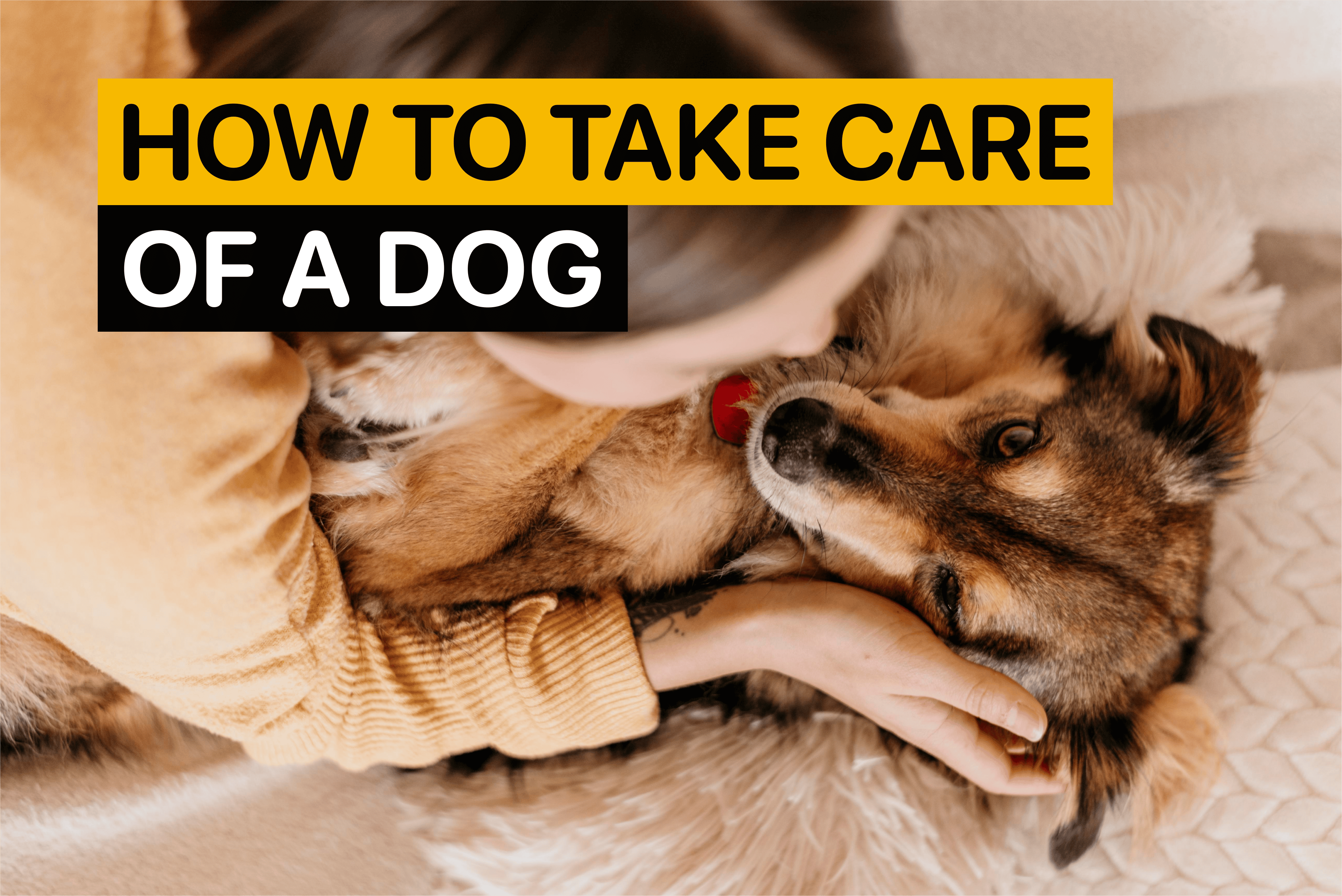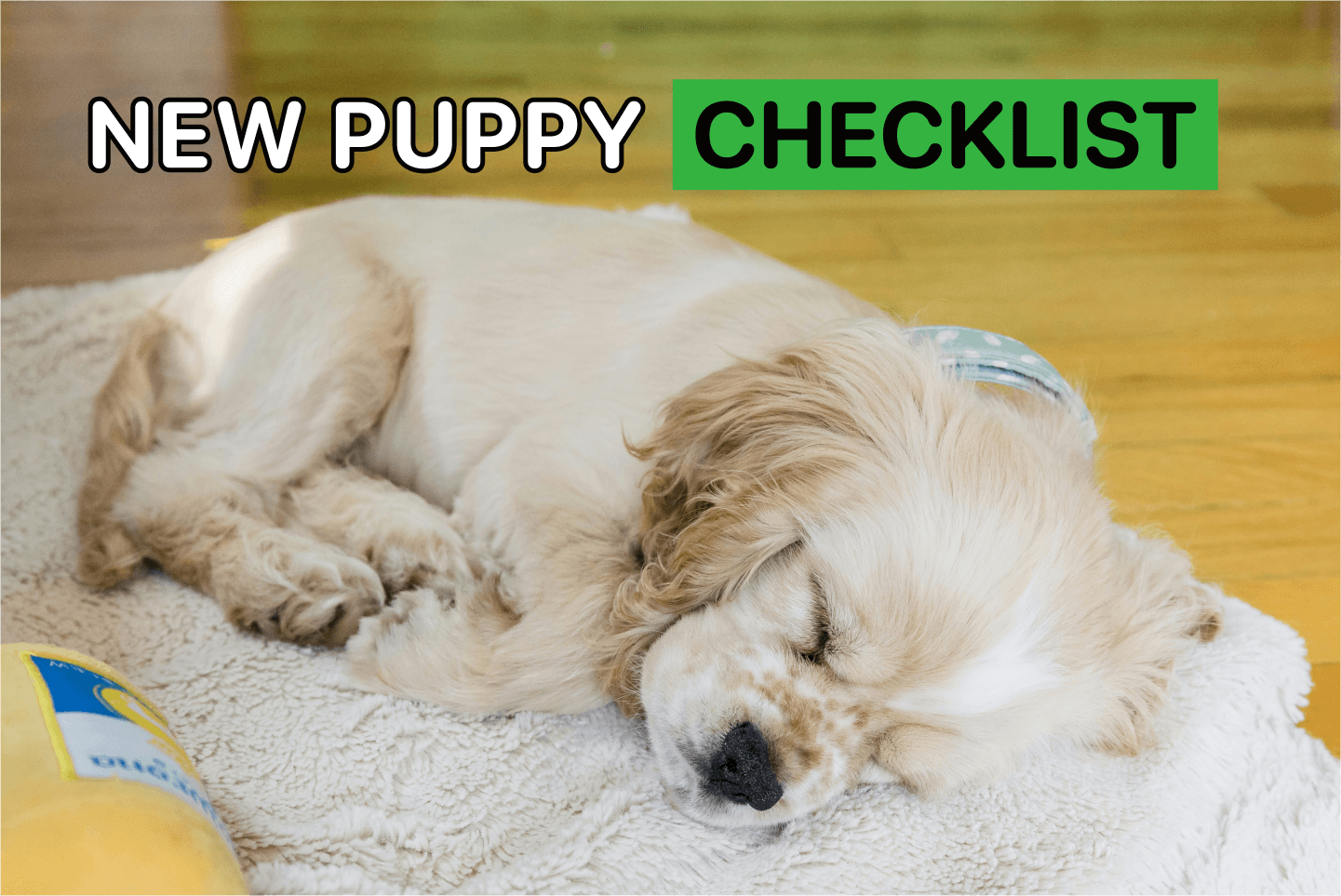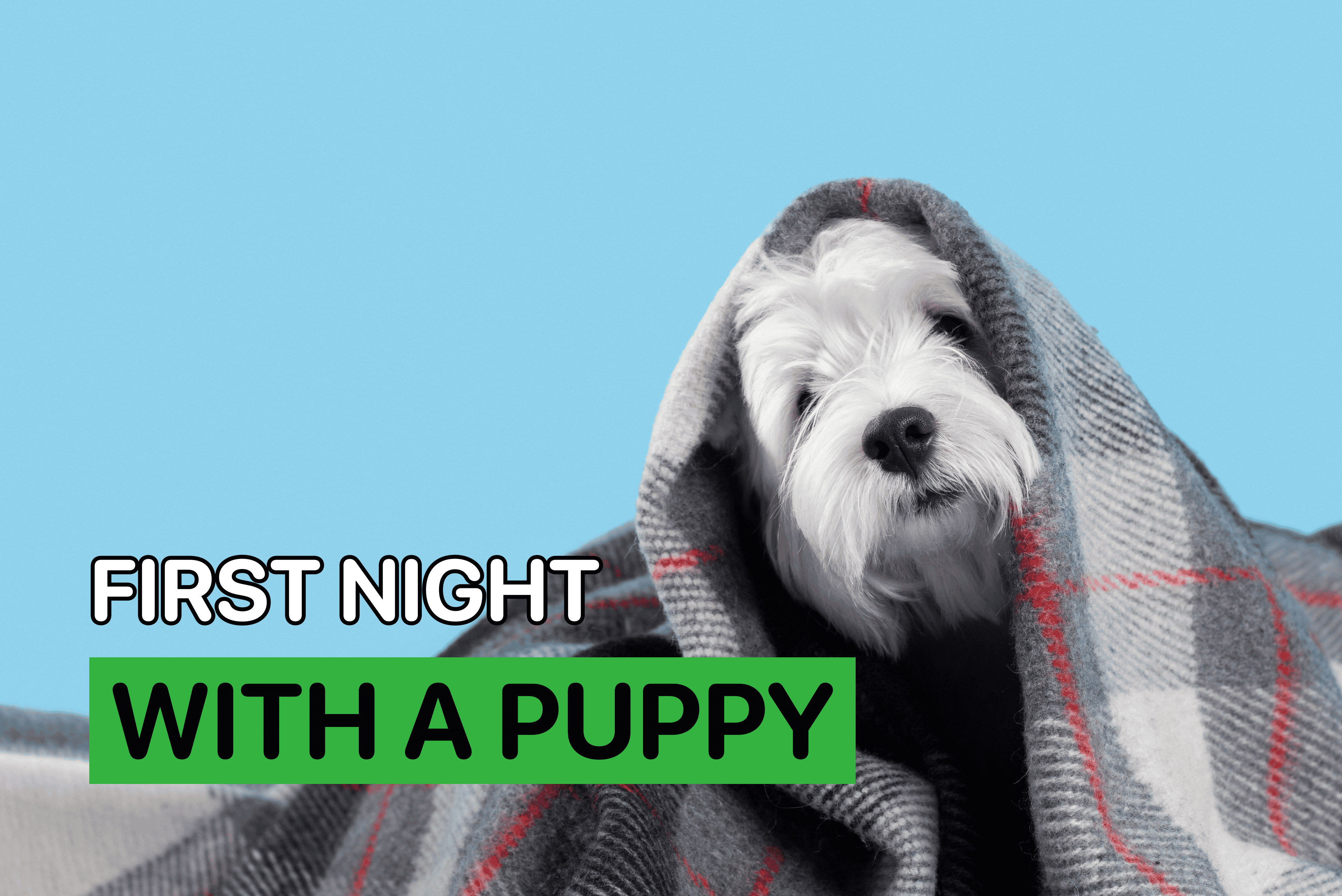Tips for First-Time Puppy Owners: A Complete New Puppy Owner Guide

By
Woofz Team Updated on |Reviewed by Frederica Caneiro
Getting a dog is one of the most rewarding things a person can do in life. They will give you love and undying loyalty, make you laugh, and help you maintain a healthy lifestyle. The connection that can develop between a dog and their owner is often more profound than the one that may exist between two people. Additionally, for many people, their new dog is another family member with their own needs.
This guide for first-time dog owners will provide information about the everyday experiences of owning a dog for the first time.
Things to Consider Before Getting a Dog
Your new dog is likely to share your life with you for the next 10–15 years, so ensure you’re ready for this kind of addition to your family dynamics. We’ve compiled a list of the biggest points to consider.
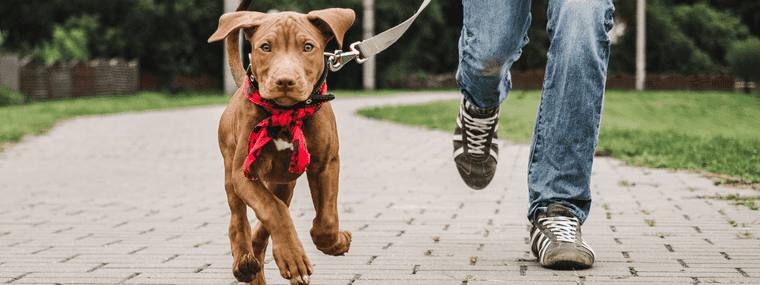
-
Time: Dogs are demanding when it comes to your time and attention. First-time dog owners must be ready to allocate their free time for walking, exercising, training and playing with their pet, as well as arranging the necessary vet visits and grooming appointments.
-
Finances: Dogs come not only with the initial cost of buying them or paying an adoption fee, but also with ongoing expenses. The latter includes regular vet bills, vaccinations, high-quality dog food, and other general costs associated with caring for a pet.
-
Household readiness: When bringing a new puppy home, first-time dog owners must ensure their place is a safe space for a canine to live in. It’s a good idea to dog-proof the house by hiding electrical cords, poisonous items, and limiting their access to trash cans or other hazards. You must also arrange a designated resting space where your new pup can relax and unwind, allowing for some alone time.
-
Family agreement: Ensure that all family members are on board with your idea of getting a puppy. Adapting a new dog to a family can be more challenging if you have young kids or other pets. Your elderly relatives may also find it difficult to adjust to the high energy levels of small puppies.
-
Breed research: Every breed has its unique characteristics, which can define how well a new dog suits your lifestyle and meets your expectations about having a pet. Breed-specific features are not limited to size and appearance only. Genes also determine your adult dog’s temperament, habits and energy levels.
Not sure if your puppy is adapting well?
Take a short quiz to see how your puppy is really doing — and what to focus on next.
Get Ready to Bring a New Puppy Home
Purchase essential supplies
Before picking up your future family member, prepare well and buy everything you need. You don't have to buy half the store as small dogs only need a little.
Create a designated space
Designate a specific area in your home for your puppy to eat, sleep, and play. This could be a large pen or a puppy-proofed room with a crate for your puppy to move around.
Puppy-proof your home
Secure hazardous items such as cleaning supplies, toxic plants, loose electrical cords, and toxic foods (e.g., grapes, raisins, onions, chocolates, macadamia nuts and more). Keep valuable or fragile items out of your pup's reach.
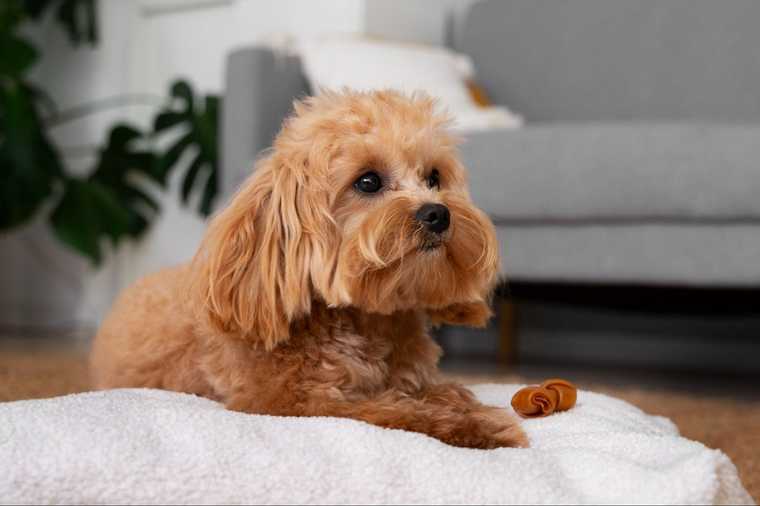
Consider installing puppy gates
Use puppy gates to block off any areas of your home you don’t want your puppy to have access to, especially areas that make it difficult for constant supervision. Pro tip: for medium to large breeds, you may need to stack two baby gates (i.e., place one on top of another) since larger puppies will jump or climb over the typical gates.
Provide comfortable bedding
Ensure that your new dog has a comfy bed or crate pad for sleeping. Also, the bedding should be the right size for your doggo and easy to clean.
Ensure the outdoor space is safe
Double-check your yard is fully enclosed and secure so that your puppy won’t have a chance to escape. A shady area and plenty of water would also benefit your pet. Avoid using lawn pesticides and other household pesticides or herbicides, as studies show a correlation with an increased risk of certain cancers.
Create a calm environment
The modern dog's environment is often limited to urban settings, and urban life typically involves exposure to numerous, repetitive, and usually intense visual and auditory stimuli. It’s of the utmost importance to ensure that your puppy doesn't connect the surroundings with feelings of anxiety or any other unpleasant experiences.
Help your dog adjust
The hustle and bustle of city life can be fascinating for you, but it can be very stressful for a puppy.

First time dog owners should pay particular attention to gradually acclimating their pet to the new environment, as well as the various situations they will encounter later in life, such as cars, escalators, elevators, trains, trams, buses, and many more.
Prepare your puppy to stay at home alone
Your puppy needs to become accustomed to spending extended periods alone at home. Introduce your pet to alone time gradually and increase the duration they spend without you over time. Ensure the place they’re staying is comfy, safe, and they have access to water, dog food, and safe toys to ease separation anxiety.
Provide unlimited attention and love
Puppies thrive on attention and love. Spend plenty of time with your new friend, play with them, and give them lots of affection and mental stimulation. It helps you build a stronger bond and prevent destructive behaviors.
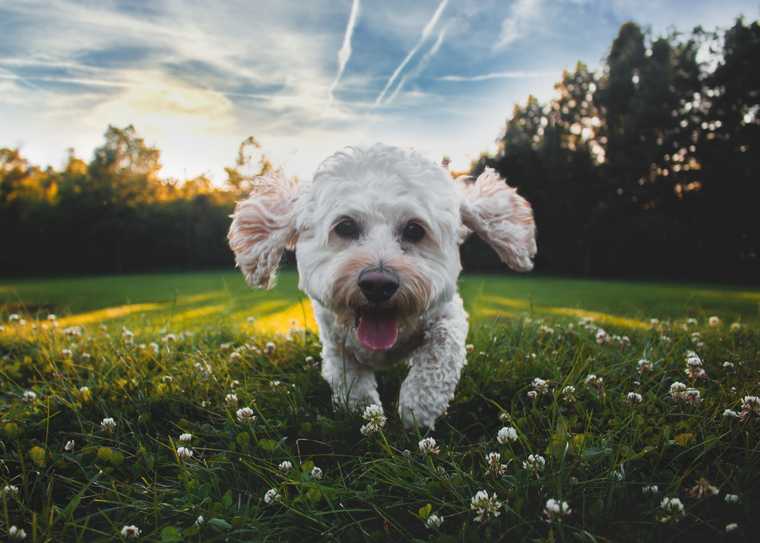
Establish a Routine and Start Training
When a young puppy moves into a new home for the first time, they try to understand and adjust to their new family and environment. Once you establish a daily routine and training schedule for your pup, their life will have much more structure and purpose.
A new puppy will feel more at ease because they’ll understand what will happen next. It will make their environment more predictable and, therefore, more comfortable.
It depend only on you and your involvement how long does puppy training take, so start potty lessons and teaching good manners right away. Once your puppy has settled in, you can move on to basic commands, skills, and house rules. Keep the training sessions short and use only positive reinforcement methods.
Dog training for beginners typically includes:
- House training (also known as potty training)
- Crate training
- Basic obedience training
- Socialization.
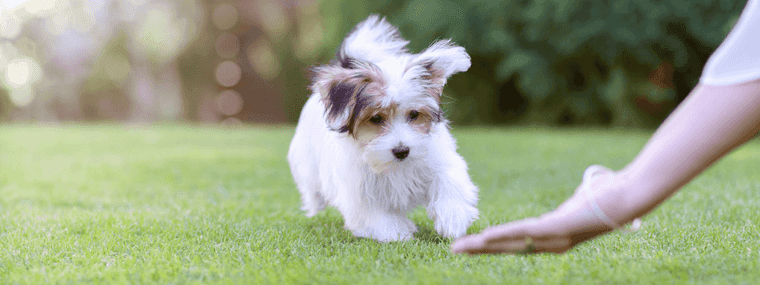
Keep Your Dog Healthy
Schedule regular veterinary checkups
Your pet can achieve and keep their ideal state of health with the help of wellness checkups. By bringing a new dog in for their recommended checkups at the vet, you’re allowing a professional to evaluate your pet's overall health and well-being. It helps identify any health issues early on and treat them effectively.
Vaccinate
Vaccinating a puppy is an effective way to prevent infectious diseases and keep their health in top condition. Depending on your location, the list of suggested vaccines can vary. First-time dog owners should consult their vet to stay up-to-date on the current vaccination requirements in their area.
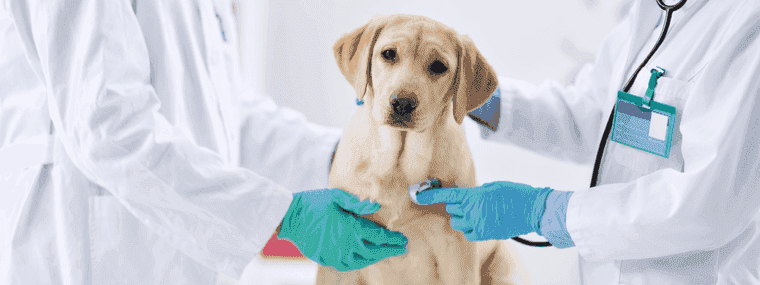
Bathe your dog with caution
Your pup’s breed and fur type will influence how often you should bathe them. Don’t skip bath time, and clean your puppy’s fur whenever needed, for example, after they’ve played in the mud outside. Use only dog-specific products.
Grooming
You can eliminate shedding, fleas, ticks, and various health conditions by taking care of your dog's fur. Having a well-groomed pet is about more than just having a cute animal; it's about having a healthy one. Grooming your puppy is an excellent way to prevent and treat potentially dangerous situations. You’ll also be able to detect any diseases or conditions that may be hiding in the background at an earlier stage. Don’t forget regular teeth cleaning and nail trimming, as these are also important parts of your puppy’s overall health.
Exercise
Exercising is vital for overall mental and physical health. Regular exercise will help your new dog stay strong and healthy, improve mobility, and lower the risk of illnesses. Training your pet can help improve their overall mood, as well as lower their levels of stress and anxiety, and avoid unwanted behaviors associated with boredom.
You can exercise your pet by engaging in various activities, such as walking, playing fetch, swimming, or running.
Create a healthy diet
Proper nutrition is essential for the optimal health and well-being of your pup.
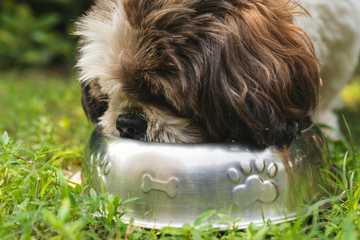
A healthy diet for your pet should consist of dog food that supplies them with all the essential nutrients they require, depending on their age, size, breed, health status, and activity level. Also, note that some foods can be dangerous for your dog.
Do’s and Don'ts When Getting a Puppy
-
Don’t bring your new pup to your bed when they whine: They might think that crying gets them what they want.
-
Sit next to your puppy until they fall asleep: To let them know they’re not alone. However, this isn’t always necessary, safe chews or lick toys can also help puppies calm themselves and drift off to sleep.
-
Place their bed next to yours: With time, you can slowly move their bed (or crate) further away.
-
Don’t play or walk with your pup if they wake up at night or early in the morning: Put your puppy straight back to bed unless you're ready to start your day.
-
Exercise in the evening: Regular play or training in the evening can help your puppy settle faster for bedtime. After playing, give them something to chew to encourage resting.
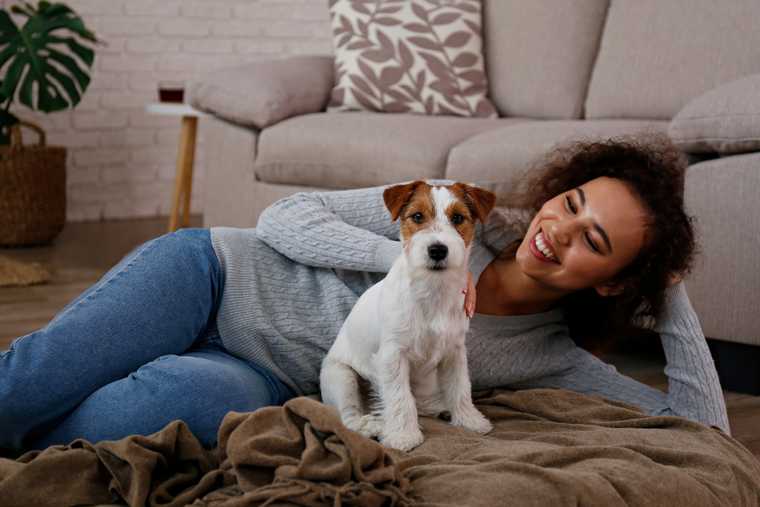
Even if you feel like you're not getting anywhere, don't be discouraged! As practice shows, even the most restless puppies get used to their new environment in the first week, and their whining habit soon becomes a thing of the past.
Wrap Up
Before becoming a new dog owner, it's essential to understand the responsibilities of first-time dog ownership and the level of commitment it entails. The initial stages of dog ownership can be particularly challenging, especially if you're entirely new to this role. Yet, if you’re ready to accept this challenge and know what to expect, it will definitely be a lovely journey for both of you!
